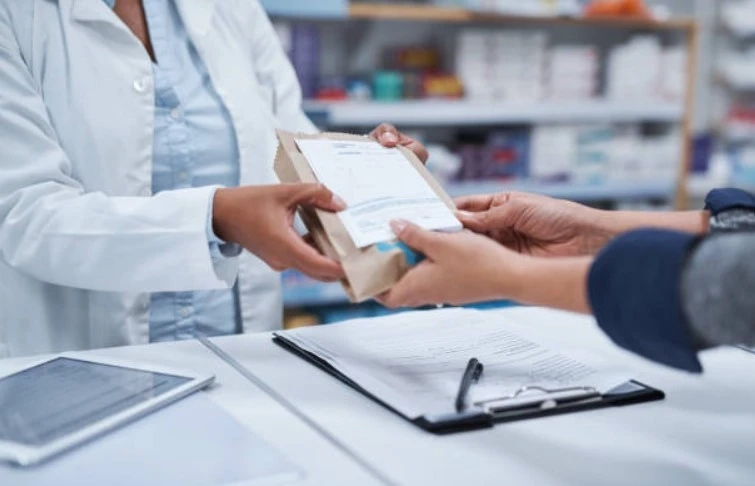When it comes to storing Medicine, it is important to know the best temperature to store it. The temperature of where you store your Medicine can affect its shelf life, potency, and safety. In this blog post, we will explore how temperature affects Medicine, the ideal temperature for storing medicines, and other considerations for storing Medicine properly. By the end of this post, you should better understand how to store your Medicine safely and effectively.
How Temperature Affects Medicine
It's important to keep your medicines safe and effective; temperature is a key factor in this. Storing medicines at the correct temperature can help to preserve their potency and prevent them from deteriorating. In addition, the right temperature range can be important for other reasons, such as preventing heat or moisture from damaging them.
When it comes to storing medicines, there are a few things that you need to keep in mind. First, ensure they are properly stored in cool, dark, and dry conditions. This will help to ensure their safety and effectiveness. Second, be aware of how different factors – such as light, heat, and moisture – can affect the stability of drugs. Finally, dispose of unused portions of your medications properly by throwing them away or returning them to your doctor or pharmacist for disposal. Follow your memorial pharmacy guidelines can keep your medicines safe and effective.
Ideal Temperature For Storing Medicines
Keeping your medicines safe and effective is important, and keeping them within the correct temperature range is key to their preservation. Many pharmacies use special climate-controlled rooms designed specifically for the storage of medicines. These rooms are typically between 15 and 25 degrees Celsius and are free from direct sunlight or other heat sources.
Different medicines are more sensitive to temperature changes, so it's important to know the ideal conditions for storing each type of Medicine. For example, some medications may only be stored at a certain temperature range, while others need to be refrigerated to remain effective. It is also important to keep track of the expiration date on each Medicine, as this will help you determine when it's time to replace it.
It's also important to be aware of any side effects after taking a medicine. If you notice any unusual symptoms, consult your doctor immediately – even if you don't think the Medicine was the cause. By being proactive about your medication safety, you can ensure that you're taking care of your health and preserving your medicines simultaneously!
Other Considerations To Store Medicine Properly
When it comes to storing medications, temperature stability is key. Medicines should only be stored at a stable temperature that does not fluctuate. This prevents the medication from deteriorating and becoming unusable. Refrigeration can also help to extend the shelf life of certain medicines by slowing down the process of oxidation and degradation.
Some medicines should not be stored in direct sunlight or extreme temperatures due to the risk of photodamage or exposure to hazardous elements. Additionally, humidity can affect medication safety; storing in an airtight container is recommended.
Keep medicines out of reach of children and pets – they cannot properly understand or handle the risks associated with medications. Also, follow manufacturer instructions for storage, as certain medications may require specific medications. Finally, properly disposing of unused or expired medications is important to avoid contamination or misuse – don't just throw them away!
How To Maintain Medicine Quality At Home
Taking care of your medications is important, especially if you have them at home. Medicines can lose their effectiveness if they're not stored properly, which can impact your health and those around you. Follow these instructions to keep your medicine quality high and ensure that it remains effective.
The ideal temperature for medicine storage is between 59°F and 86°F (15°C to 30°C). Any medicine stored above or below this range in a home setting may lose some effectiveness. It's also important to pay attention to storage and expiration dates on the labels of meds. Make sure to store meds away from direct sunlight and in a cool, dark cupboard. If a medicine needs to be refrigerated, make sure it's placed in the right location in the refrigerator according to the label instructions. Finally, keep medicines away from children's reach – even if they are properly stored – and dispose of expired medications as soon as possible. By following these simple tips, you can always maintain the quality and potency of your medication.
Conclusion
In conclusion, it is important to store medicines in the correct temperature range and in the appropriate environment to maintain potency and safety. The ideal temperature for most medications is between 59°F and 86°F (15°C to 30°C), although other factors such as humidity, light, moisture, and expiration dates must also be taken into consideration. Finally, ensure to keep your medicines out of reach of children and dispose of expired medications properly. To ensure that your Medicine remains safe and effective, follow these tips for storing medication at home.
0


